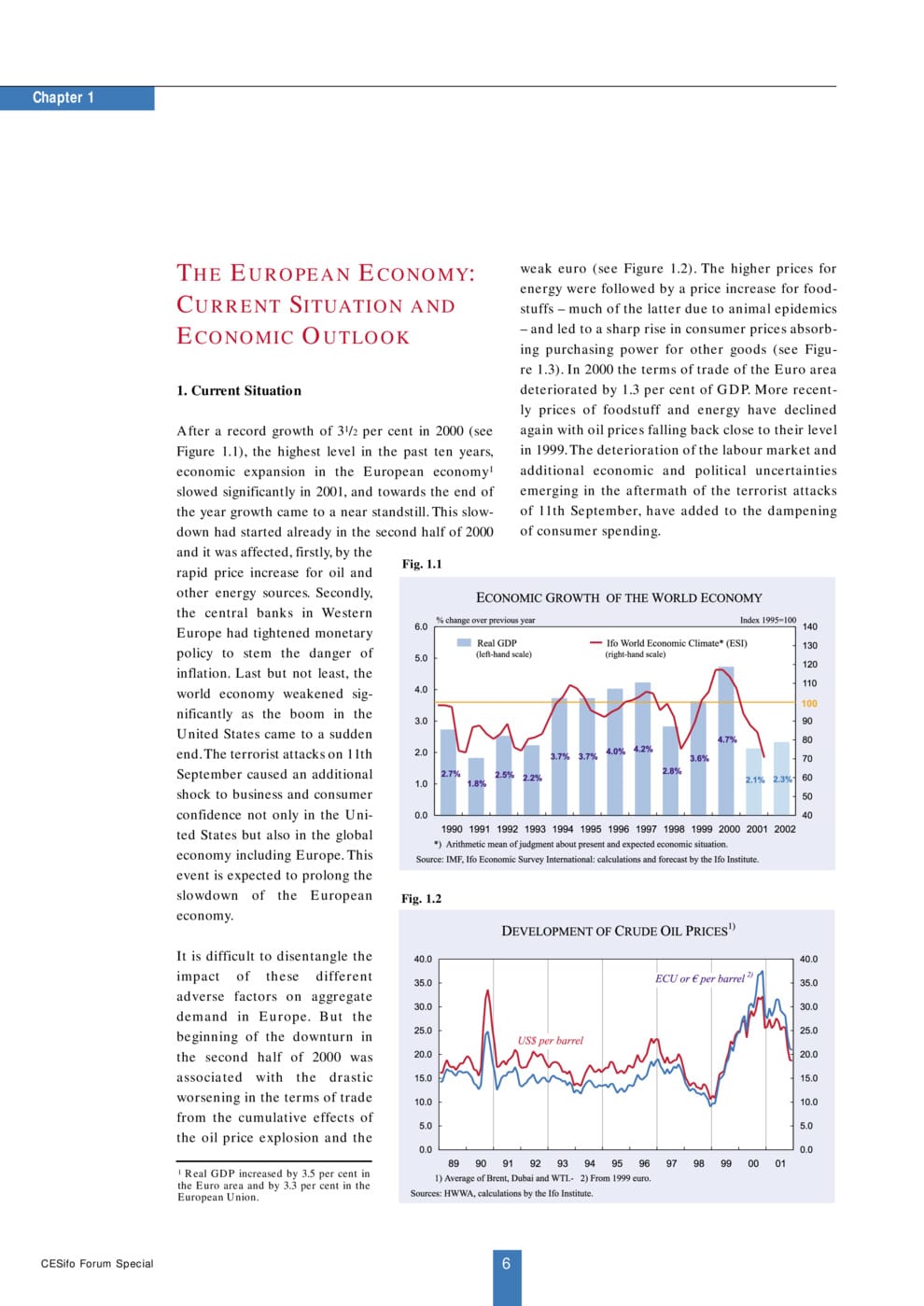The European Economy: Current Situation and Economic Outlook
Ifo Institute for Economic Research, Munich, 2002
in: EEAG European Economic Advisory Group at CESifo: Report on the European Economy 2002 (CESifo Forum Special), 6-26

This chapter is an assessment of the economic situation of Europe, with some concentration on those countries which have adopted the euro in 2001 and 2002 drawing on a wide variety of sources including Ifo survey data. At 1.6% in 2001 and 1.3% in 2002, these GDP growth rates are both, lower than earlier forecasts as a result of information since September 11, 2001 and lower than most forecasts by national governments (which may be biased upwards to present projections of imminent fiscal stabilisation) and one percentage point lower than the growth of potential output. Prospective European growth exceeds that of the United States in 2001 and, like in the United States, recovery starts in the course of 2002. Unlike the United States, Europe as a whole is not expected to experience any decline in quarterly GDP, although some member countries are already in recession. Slow growth is reflected in unemployment rising by 0.25 percentage points between 2001 and 2002 (from a low point in 2001), while inflation falls by 0.75 percentage points in the Euro area.
Included in
EEAG European Economic Advisory Group at CESifo: Report on the European Economy 2002
Ifo Institute for Economic Research, Munich, 2002